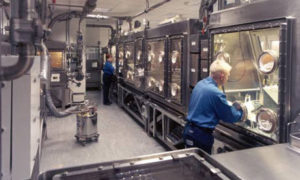
The Telegraph wrote “The Nuclear Decommissioning Authority, which took the plant over from British Nuclear Fuels in 2005, said ‘potential delays following the earthquake in Japan’ means the plant must close ‘in order to ensure that the UK taxpayer does not carry a future financial burden’.”
The UK is currently sitting on 6,600 tons of used fuel from Advanced-Gas Reactors and 100 tons of “civil plutonium” (leave it to the Brits to worry whether the plutonium is civil or uncivil – perhaps it didn’t attend Eton or Winchester?). Without Japanese customers for the Mox fuel, though, doing anything with it is problematic. The civil plutonium is currently classified by the government as a “zero value asset.”
However, the Sellafield plant has never lived up to expectations. It was designed to crank out 120 tons of Mox per year. Operational difficulties meant that figure was downrated to 40 tons annually. In the 9 years it operated, it produces a grand total of 15 tons. It probably won’t be missed except by the employees.
However, the Cameron government may actually commission a new processing plant at Sellafield. One that works, presumably. However, the main problem would still remain; without the Japanese demand for Mox, just who is going to buy it?
As an aside, Sellafield is located near Seascale, a lovely part of Britain, by the Lake District. Look at a map and you’ll find it about halfway between Liverpool and Glasgow on the Irish Sea. The fire there in October of 1957 was the worst nuclear accident until Three Mile Island in 1979. For PR reasons, the facilities now go by the name of Sellafield – Mrs. Thatcher changed the name from Windscale, in an effort to decontaminate the brand.